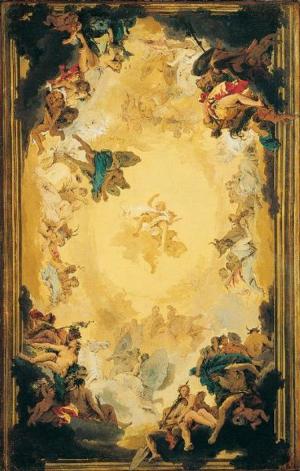Stormlight, Or, The Nihilist's Doom: A Story of Switzerland and Russia
Nonfiction, Religion & Spirituality, New Age, History, Fiction & Literature| Author: | Joyce Emmerson Muddock | ISBN: | 9781465597618 |
| Publisher: | Library of Alexandria | Publication: | March 8, 2015 |
| Imprint: | Language: | English |
| Author: | Joyce Emmerson Muddock |
| ISBN: | 9781465597618 |
| Publisher: | Library of Alexandria |
| Publication: | March 8, 2015 |
| Imprint: | |
| Language: | English |
From time immemorial Geneva has been the home of conspiracy and the refuge of political adventurers from all parts of the world. Nihilism, exterminated from its own goil, found a congenial atmosphere there, and has taken root and flourished. When Prince Krapotkin was being tried at Lyons, the President of the Tribunal described Geneva as the "Cancer of Europe."This was severe, but it was not altogether an undeserved reproach. And if nothing else had justified it, the assassination of the late Emperor of Russia would have done so, for it was in Geneva, beyond all question of doubt, that the plot for that dastardly deed was organized. The assassins are known to have gone from Geneva direct to Russia, and one of them who escaped Russian vengeance—a female—still lives, and finds a refuge and a home under the fostering care of the Swiss Republic. If one is asked why the city on the shores of Lake Leman should have been chosen as the favourite abiding-place of those who would reform society arid reconstitute their country by the aid of dynamite and bombshells, the answer is easily given. It is due to its geographical position. One can step out of Geneva into French territory in a few minutes, and half-a-dozen hours will place one on Italian or German soil. The advantages of this will at once strike the reader. A man commits an offence in Germany say, and he flies for shelter to Geneva. la time he hears that the German police have a warrant, and are seeking permission from the Swiss Government to take him; but, before this can be done, he strolls into France, or takes the train, or crosses one of the Passes into Italy. And, before he could be arrested, permission from the respective Governments of those countries would have to be sought. If a man murders another man in a drunken brawl and flies to an alien country, his extradition is simple and easy; but, if a man slays an Emperor or King, or throws a dynamite bomb into the midst of a crowd of innocent people, so long as he does it in the name of some political agitation, most of the European Governments will afford him protection and shelter, and his extradition is a matter of extreme difficulty. He is looked upon as a political refugee, and political refugees are treated with peculiar leniency and toleration, though heaven Knows why. The worst sinners in this respect are Switzerland and England, and in London and Geneva may be found men who might not inaptly be described as "neither ghoul nor human," but a mixture of both, with the very worst attributes of the latter.
From time immemorial Geneva has been the home of conspiracy and the refuge of political adventurers from all parts of the world. Nihilism, exterminated from its own goil, found a congenial atmosphere there, and has taken root and flourished. When Prince Krapotkin was being tried at Lyons, the President of the Tribunal described Geneva as the "Cancer of Europe."This was severe, but it was not altogether an undeserved reproach. And if nothing else had justified it, the assassination of the late Emperor of Russia would have done so, for it was in Geneva, beyond all question of doubt, that the plot for that dastardly deed was organized. The assassins are known to have gone from Geneva direct to Russia, and one of them who escaped Russian vengeance—a female—still lives, and finds a refuge and a home under the fostering care of the Swiss Republic. If one is asked why the city on the shores of Lake Leman should have been chosen as the favourite abiding-place of those who would reform society arid reconstitute their country by the aid of dynamite and bombshells, the answer is easily given. It is due to its geographical position. One can step out of Geneva into French territory in a few minutes, and half-a-dozen hours will place one on Italian or German soil. The advantages of this will at once strike the reader. A man commits an offence in Germany say, and he flies for shelter to Geneva. la time he hears that the German police have a warrant, and are seeking permission from the Swiss Government to take him; but, before this can be done, he strolls into France, or takes the train, or crosses one of the Passes into Italy. And, before he could be arrested, permission from the respective Governments of those countries would have to be sought. If a man murders another man in a drunken brawl and flies to an alien country, his extradition is simple and easy; but, if a man slays an Emperor or King, or throws a dynamite bomb into the midst of a crowd of innocent people, so long as he does it in the name of some political agitation, most of the European Governments will afford him protection and shelter, and his extradition is a matter of extreme difficulty. He is looked upon as a political refugee, and political refugees are treated with peculiar leniency and toleration, though heaven Knows why. The worst sinners in this respect are Switzerland and England, and in London and Geneva may be found men who might not inaptly be described as "neither ghoul nor human," but a mixture of both, with the very worst attributes of the latter.















